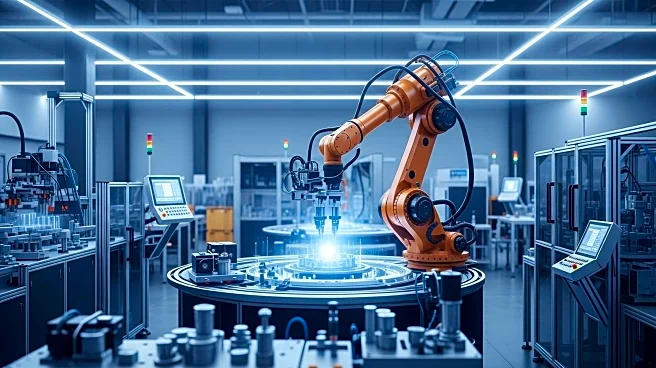What is the story about?
What's Happening?
Daifuku has completed a significant expansion of its manufacturing plant in Hobart, Indiana, doubling its production capacity to meet the growing demand for automation systems. The expansion, which involved an investment of approximately 5 billion yen ($35 million), adds 25,000 square meters of manufacturing space to the existing facility. This development is aimed at addressing the increasing need for conveyors, sorters, and automated storage and retrieval systems in North America, driven by labor shortages and higher operating costs. The expanded facility will begin operations in October, enhancing Daifuku's ability to provide faster production and streamlined operations for its North American customers.
Why It's Important?
The expansion of Daifuku's US factory is a strategic move to capitalize on the rising demand for automation solutions in the region. As labor shortages and operational costs continue to challenge industries, the need for efficient automation systems becomes critical. This expansion not only strengthens Daifuku's position in the North American market but also supports local production, aligning with the company's policy of local production for local consumption. The increased capacity will likely benefit distribution centers and manufacturing plants, potentially leading to improved operational efficiencies and reduced lead times.
What's Next?
With the expanded facility set to begin operations in October, Daifuku is poised to further enhance its competitiveness in the US market. The company aims to continue expanding its global intralogistics business, with the United States identified as a key growth market. As automation needs are expected to grow, Daifuku's investment in local production capabilities positions it well to meet future demand and support the evolving needs of its customers.
Beyond the Headlines
The expansion reflects broader trends in the manufacturing industry, where automation is increasingly seen as a solution to labor shortages and cost pressures. This development may also influence other companies to invest in similar expansions to remain competitive. Additionally, the focus on local production for local consumption highlights a shift towards more sustainable and efficient manufacturing practices.














